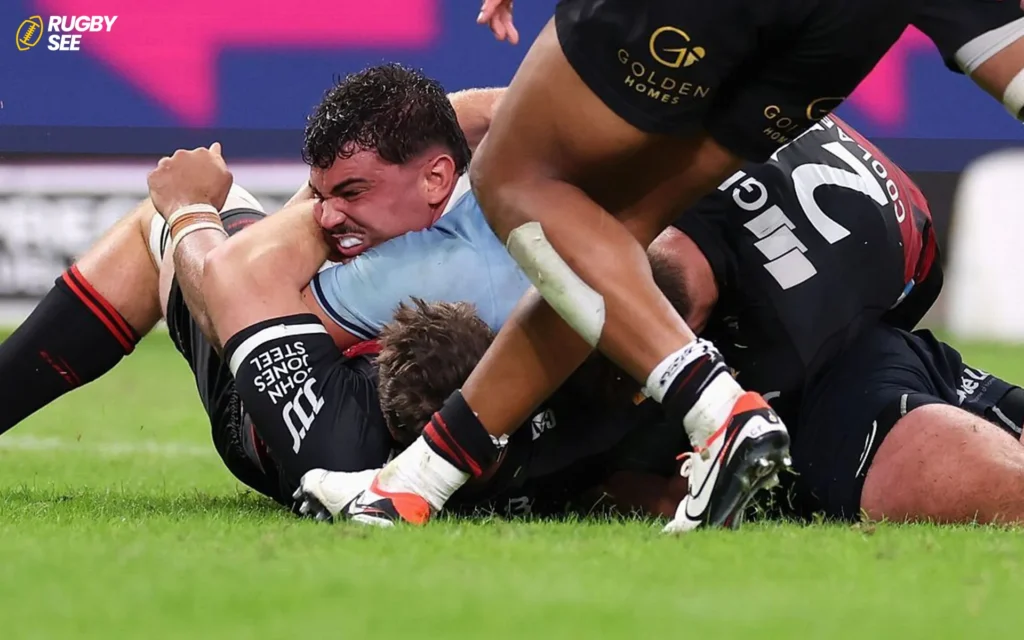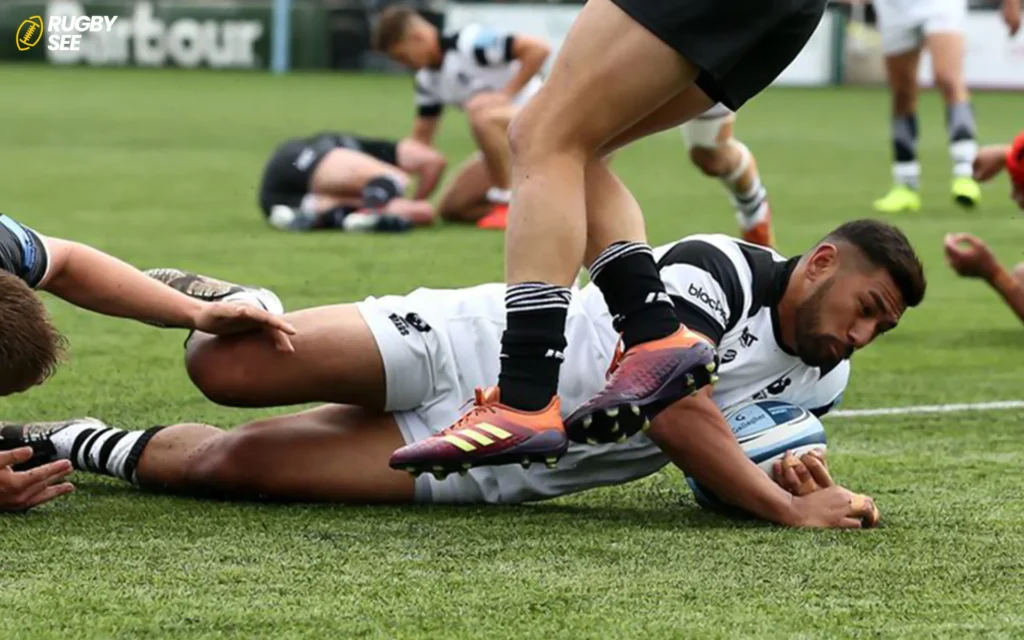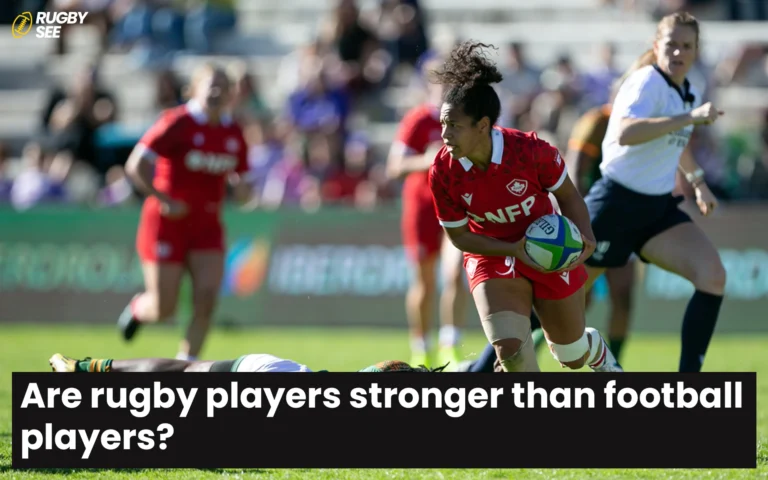Rugby and American football are two titans of the sports world, renowned for their physicality, strategy, and passion. Both games involve intense physical contact and require players to exhibit strength, skill, and resilience. In this SEO-optimized article, we delve deep into the debate of which sport is tougher, examining various aspects such as gameplay, rules, player roles, and cultural influences to determine the true measure of toughness between rugby and American football.
Understanding the Gameplay: At first glance, rugby and American football share similarities in their objective – advancing the ball towards the opponent’s end zone to score points. However, the execution of this objective differs significantly between the two sports. In rugby, continuous play is emphasized, with limited stoppages and fluid transitions between offense and defense. Players engage in tackles, rucks, and scrums without protective gear, relying solely on their physicality and technique.
Conversely, American football is characterized by its structured, stop-and-start gameplay. Each play begins with a set formation, followed by a brief burst of intense action before another stoppage. The use of protective equipment such as helmets, shoulder pads, and pads offers a layer of physical protection, allowing players to execute high-impact collisions with greater force and confidence.
Analyzing Physical Contact: Physical contact is inherent to both rugby and American football, but the nature of this contact differs. In rugby, tackles are fundamental to the game, with players aiming to bring down opponents using proper tackling technique. While rugby tackles can be bone-jarring and intense, the absence of protective gear means players must be mindful of their own safety and that of their opponents.

In American football, tackles often involve full-speed collisions between players, particularly in positions like linebacker and running back. The use of helmets and pads enables players to deliver and absorb hits with greater force, leading to spectacular tackles that are a hallmark of the sport. However, the reliance on protective gear also fosters a more aggressive style of play, with players sometimes leading with their helmets or engaging in dangerous tackles.
Player Roles and Specialization: Both rugby and American football feature diverse player roles and positions, each with its unique set of responsibilities and physical demands. In rugby, players are expected to possess a wide range of skills, including tackling, passing, kicking, and rucking. The absence of specialized positions means rugby players must be versatile and adaptable, capable of performing multiple roles on the field and if you want to know about the best Italian Rugby player read Who is the best Italian rugby player?
Conversely, American football emphasizes specialization, with players assigned to specific positions based on their physical attributes and skill sets. Positions such as quarterback, wide receiver, and defensive lineman require distinct skill sets and techniques tailored to their roles. The specialization in American football allows players to focus on mastering their positions, leading to a higher degree of technical proficiency in certain aspects of the game.
Cultural Influences and Perception: The perception of toughness in rugby and American football is also influenced by cultural factors. In countries where rugby enjoys widespread popularity, such as New Zealand, South Africa, and England, toughness is synonymous with resilience, teamwork, and a willingness to endure physical punishment for the good of the team. Rugby players are revered for their toughness both on and off the field, embodying the spirit of the sport through their actions.
In contrast, American football is deeply ingrained in the cultural fabric of the United States, where toughness is often equated with physical dominance and aggression. The gladiatorial nature of American football, characterized by bone-crushing tackles and high-impact collisions, has cemented its reputation as a tough and uncompromising sport. Players who demonstrate exceptional physical prowess and resilience are celebrated as heroes, embodying the American ideal of strength and determination.

In the eternal debate of rugby vs. American football, determining which sport is tougher ultimately comes down to individual perspective and interpretation. While rugby emphasizes endurance, teamwork, and adaptability, American football showcases brute force, technical precision, and specialization. Both sports demand a high level of physical and mental toughness from their players, challenging them to push past their limits and strive for excellence.
Whether you’re a fan of bone-rattling tackles or strategic finesse, one thing is certain – rugby and American football will continue to captivate audiences around the world with their unique blend of skill, athleticism, and sheer toughness. So, the next time you find yourself pondering which sport is tougher, remember that true toughness transcends the confines of the playing field, inspiring admiration and respect in all who dare to embrace the challenge.
Comparing Injury Rates and Long-Term Health Impacts: Another aspect to consider when assessing toughness is the prevalence of injuries and their long-term health impacts in rugby and American football. While both sports carry inherent risks due to their physical nature, research suggests that American football tends to have higher injury rates, particularly in terms of concussions and traumatic brain injuries (TBIs).
The use of helmets and pads in American football can create a false sense of security, leading to more aggressive play and a higher likelihood of head-to-head collisions. Additionally, the repetitive nature of collisions in American football, especially among linemen and linebackers, increases the risk of chronic traumatic encephalopathy (CTE) and other degenerative brain diseases later in life.
In contrast, rugby players, despite not wearing helmets or pads, tend to exhibit more cautious tackling techniques, as the absence of protective gear necessitates a greater focus on player safety. While rugby still sees its share of injuries, including concussions and orthopedic injuries, the overall injury rates may be lower compared to American football, particularly at the professional level.
Cultural Differences in Injury Perception: The perception and management of injuries also vary between rugby and American football cultures. In rugby, players are often lauded for their ability to “play through pain” and demonstrate resilience in the face of injury. However, recent initiatives aimed at prioritizing player welfare and concussion protocols have sought to change this mindset, emphasizing the importance of player safety and long-term health.

In American football, injuries are sometimes viewed as an inevitable consequence of the game, with players expected to endure physical punishment for the sake of victory. While efforts have been made to improve player safety through rule changes and enhanced medical protocols, the cultural emphasis on toughness and machismo can sometimes discourage players from reporting injuries or seeking proper medical attention.
Global Reach and Cultural Impact: Beyond the field of play, the cultural impact and global reach of rugby and American football also shape perceptions of toughness. Rugby enjoys a strong international presence, with passionate fan bases in countries across Europe, Oceania, Africa, and the Americas. The inclusive and egalitarian nature of rugby, coupled with its emphasis on sportsmanship and camaraderie, has endeared it to audiences worldwide, transcending cultural and geographical boundaries.
On the other hand, American football’s cultural influence is primarily concentrated in the United States, where it is deeply entrenched in the national identity and cultural zeitgeist. While efforts have been made to promote American football internationally, particularly through initiatives like the NFL International Series, the sport still struggles to gain widespread traction outside of North America and if you want to know about wearing glasses in Rugby read can rugby players wear glasses?
In the eternal debate of rugby vs. American football, determining which sport is tougher is a nuanced and multifaceted endeavor. While both sports demand a high level of physicality, skill, and mental toughness from their participants, the factors that contribute to toughness – including gameplay, injury rates, cultural influences, and global reach – differ between rugby and American football.
Ultimately, toughness is not solely defined by the intensity of physical contact or the frequency of injuries, but rather by the resilience, fortitude, and sportsmanship displayed by athletes in the face of adversity. Whether you’re a fan of the bone-crunching tackles of American football or the relentless pursuit of victory in rugby, one thing is certain – both sports embody the indomitable spirit of human perseverance and the unwavering pursuit of excellence.
So, the next time you find yourself embroiled in the debate of rugby vs. American football, remember that true toughness transcends the boundaries of sport, inspiring awe and admiration in all who witness its expression. Whether on the pitch, the gridiron, or in the arena of life, let us celebrate the enduring legacy of toughness and resilience that defines the essence of sport itself.
Final Thoughts: In conclusion, the debate of rugby vs. American football is not merely a question of which sport is tougher, but rather a celebration of the diverse and multifaceted world of sports. Whether you’re a rugby purist or a die-hard football fanatic, both sports offer something unique and compelling, uniting players and fans alike in their shared love of the game. So, let’s put aside the debates and rivalries for a moment and simply revel in the beauty of athleticism, camaraderie, and the indomitable human spirit that defines both rugby and American football.










